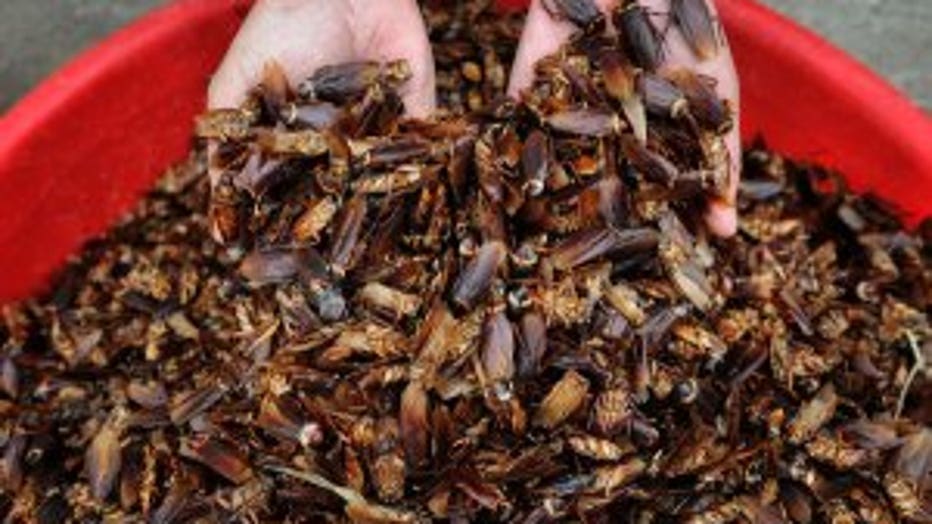Yuck: Cockroach farms on the rise
HONG KONG -- This squat concrete building was once a chicken coop, but now it's part of a farm with an entirely different kind of livestock — millions of cockroaches.
Inside, squirming masses of the reddish-brown insects dart between sheets of corrugated metal and egg cartons that have been tied together to provide the kind of dark hiding places they favor.
Wang Fuming kneels down and pulls out one of the nests. Unaccustomed to the light, the roaches scurry about, a few heading straight up his arm toward his short-sleeve shirt.
"Nothing to be afraid of," Wang counsels visitors who are shrinking back into the hallway, where stray cockroaches cling to a ceiling that's perilously close overhead.
Although cockroaches evoke a visceral dread for most people, Wang looks at them fondly as his fortune — and his future.

The 43-year-old businessman is the largest cockroach producer in China (and thus probably in the world), with six farms populated by an estimated 10 million cockroaches. He sells them to producers of Asian medicine and to cosmetic companies that value the insects as a cheap source of protein as well as for the cellulose-like substance on their wings.
The favored breed for this purpose is the Periplaneta americana, or American cockroach, a reddish-brown insect that grows to about 1.6 inches long and, when mature, can fly, as opposed to the smaller, darker, wingless German cockroach.
Since Wang got into the business in 2010, the price of dried cockroaches has increased tenfold, from about $2 a pound to as much as $20, as manufacturers of traditional medicine stockpile pulverized cockroach powder.
"I thought about raising pigs, but with traditional farming, the profit margins are very low," Wang said. "With cockroaches, you can invest 20 yuan and get back 150 yuan," or $3.25 for a return of $11.
For more on this LA Times story, click here.

